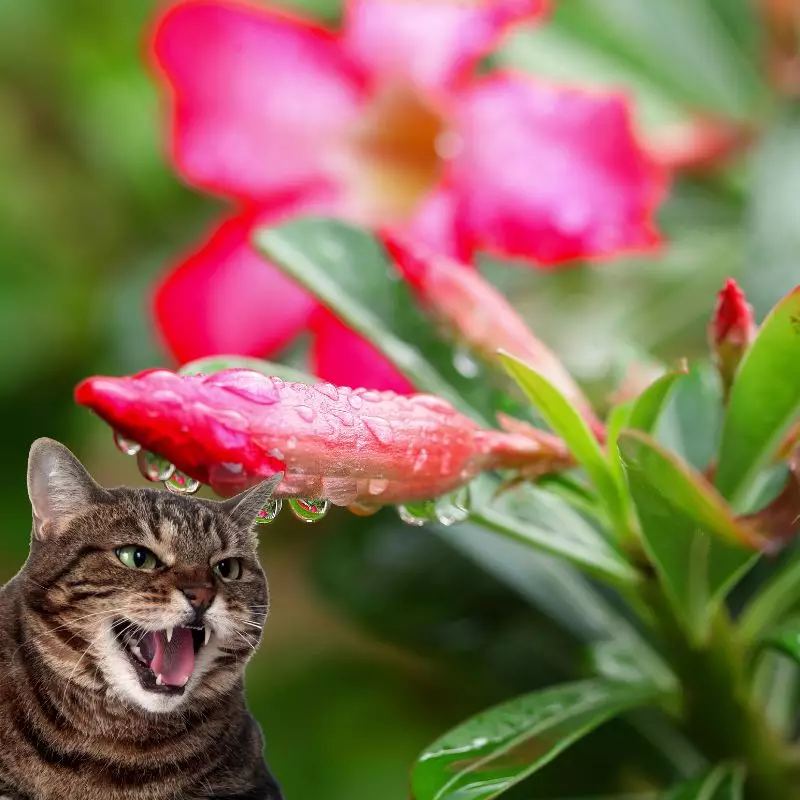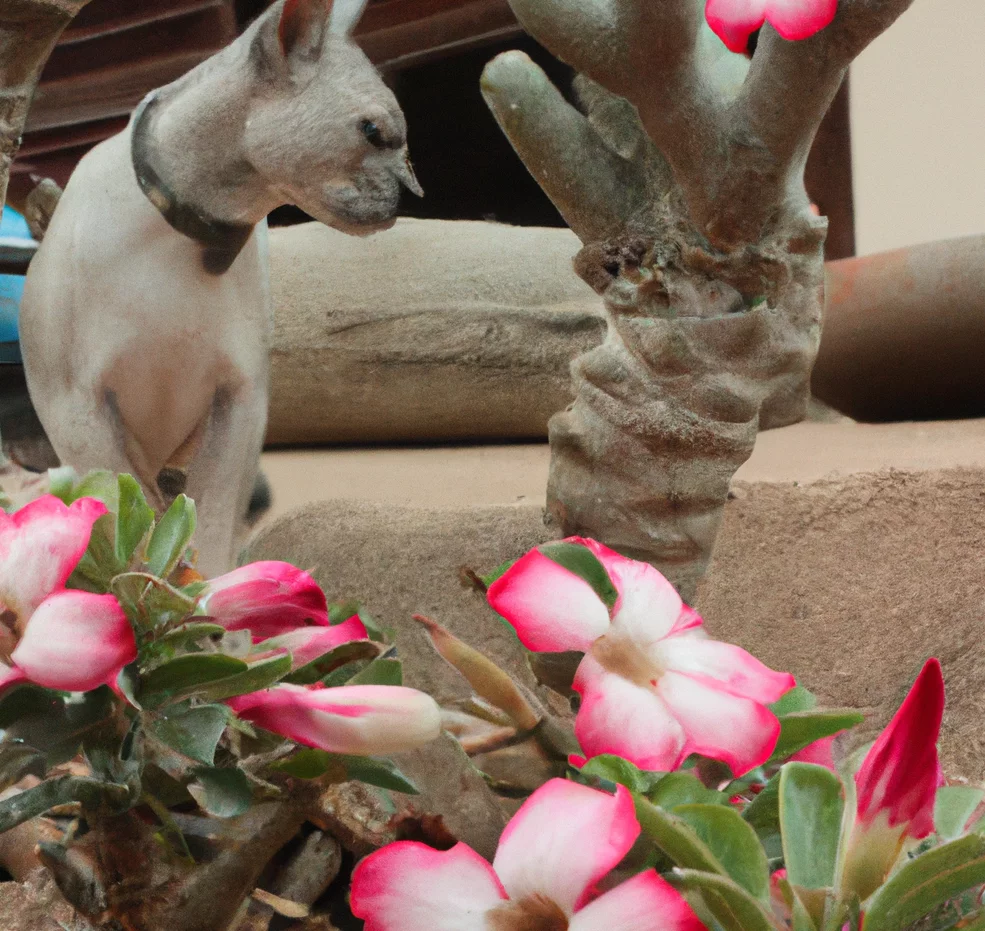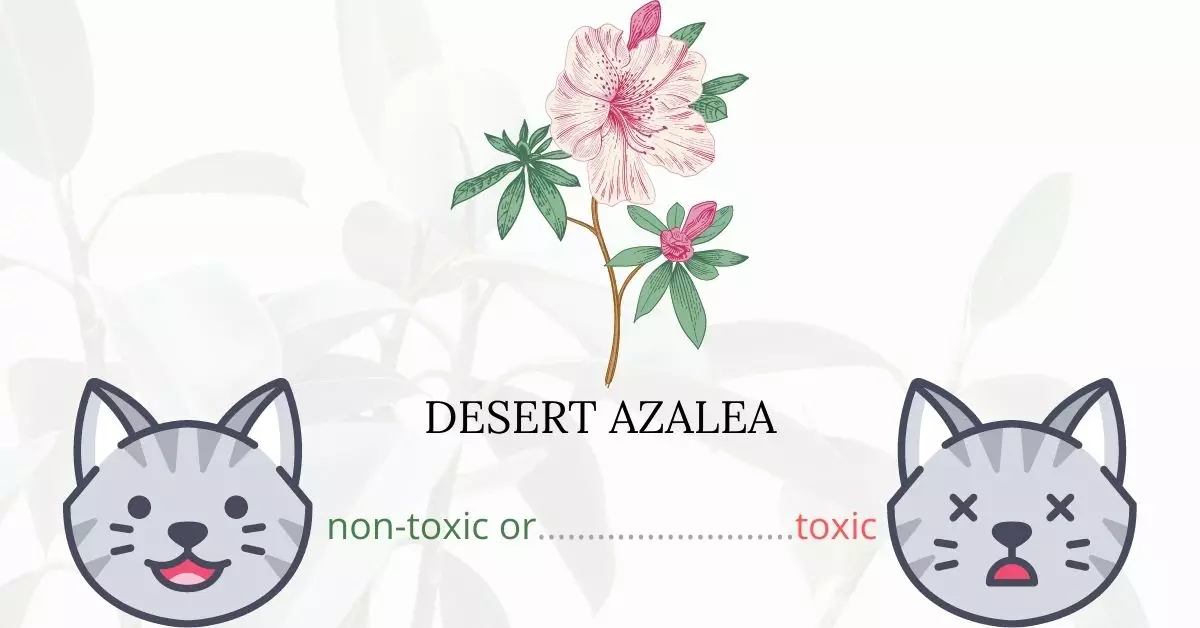Yes, Desert Azalea, also known as Desert Rose, Mock Azalea, Sabi Star, Impala Lily, and Kudu Lily, is toxic to cats. When ingested, it contains cardiac glycosides which bind directly to the cat’s cell membranes, preventing them from metabolizing certain chemicals. This leads to a phenomenon called ‘depolarization,’ where the cell’s electric charge shifts, affecting its functionality and interaction with surrounding cells. One of the most noticeable consequences is the onset of heart palpitations. In severe cases, if a significant amount of glycoside is consumed, it can lead to cardiac arrest and potentially death.
This article was written in collaboration with a team of experienced DVMs (doctors of veterinary medicine). Through their invaluable insights and expertise, we offer accurate and updated information on the potential risks of various plants, specifically Desert Azalea, to cats. Our comprehensive research also encompasses high-authority websites such as ASPCA and PetMD to ensure a holistic understanding of each plant’s effects.
Clinical Signs of Desert Azalea or Desert Rose Poisoning in Cats

The Desert Azalea or Desert Rose plant, when ingested or even merely contacted or smelled by cats, can induce a series of adverse reactions owing to the cardiac glycosides present in the plant. Recognizing these signs early is vital for the well-being of your pet:
- Vomiting: After ingestion, the cat’s body tries to rid itself of the harmful substances, resulting in vomiting. This is an immediate response to the toxins present in the plant.
- Diarrhea: Much like vomiting, diarrhea is another way the feline body tries to expel harmful substances. The digestive system becomes irritated, leading to loose stools.
- Anorexia: The toxins can cause a significant decrease in appetite or a complete refusal to eat. This is due to the discomfort and gastrointestinal upset that the toxins induce.
- Depression: Cats may display lethargy or reduced activity levels after contact with Desert Azalea. The toxins in the plant can affect the cat’s central nervous system, leading to behavioral changes.
- Irregular heartbeat: The cardiac glycosides directly interfere with the cat’s heart function. The shift in the cellular electric charge, as mentioned earlier, can result in palpitations or an irregular heartbeat, reflecting the heart’s struggle to maintain its rhythm.
- Death: In severe cases, especially if left untreated, the ingestion or contact with the Desert Azalea can be fatal. The cumulative effects of all symptoms, particularly the cardiac implications, can lead to a tragic outcome.
If a cat displays any of these symptoms after coming into contact with Desert Azalea or Desert Rose, seeking immediate veterinary care is imperative.
First Aid and Treatment of Desert Azalea or Desert Rose Poisoning in Cats

Antiarrhythmic medicines may be used in the treatment of desert azalea poisoning to help the cat’s heart rate settle and avoid heart failure. Fluids can be given intravenously to replace those lost due to diarrhea or vomiting. Activated charcoal can also be taken orally to prevent poisons from being absorbed further through the digestive system. If the poisoning is discovered early enough, the vet may decide to pump the contents of the cat’s stomach to prevent the poison from being digested in its entirety.
Recovery from Desert Azalea or Desert Rose Poisoning in Cats

The length of recuperation varies, but most cats should anticipate returning to normal in two to three weeks. Poisoning from desert azalea can be exhausting, therefore owners should limit their cat’s movements for a while to allow them to recover. It may also be important to offer them bland or even liquid food to allow their stomachs to heal from the ordeal.
Prevention of Desert Azalea or Desert Rose Poisoning in Cats
Make sure that there are no desert azaleas growing in your yards. If you are a plant enthusiast, it is better to research cat-friendly plants and grasses that your cat can nibble on. Limit your cat’s access outdoors to lessen his or her risk of exposure to poisonous plants.
If you love plants but have cats at home, check out these lists:





